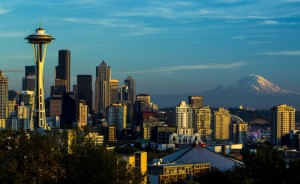 The City Council of Seattle, Washington has unanimously voted in favor of a new ordinance that allows drivers under contract, through Uber or Lyft, to organize. These workers were not protected by federal law, as the National Labor Relations Act (“NLRA”) explicitly states that independent contractors are excluded from coverage.
The City Council of Seattle, Washington has unanimously voted in favor of a new ordinance that allows drivers under contract, through Uber or Lyft, to organize. These workers were not protected by federal law, as the National Labor Relations Act (“NLRA”) explicitly states that independent contractors are excluded from coverage.
Uber’s system has been challenged repeatedly in courts by drivers that allege they are employees of the organization, rather than independent contractors, and are therefore entitled to minimum wage and overtime. The drivers have had little success, however, and have not yet made any ground with such classification under the NLRA.
The National Labor Relations Board (“NLRB”) has recently ruled that FedEx drivers may organize under the NLRA. FedEx has zealously advocated that its drivers are independent contractors. The NLRB altered its independent contractor test in order to classify these drivers as employees. In Seattle, however, Uber drivers have not been classified as employees, but are still permitted to collectively bargain via their organization, the App-Based Drivers Association.
Critics of the ordinance believe that federal law will preempt the City’s legislation, which means that states and local governments would not be lawfully capable of creating unionization standards independent of the NLRA. There is further speculation that drivers who organize without being a lawful union under federal law would be violating federal anti-trust laws by price-fixing. If, however, the ordinance does stand, it would have a far-reaching impact on the growing tech-based contracting industry.
App-based drivers belong to a class of worker that work in what is referred to as the “gig-based economy.” In this system, customers in demand of a certain task or job to be performed submit their requests to a service, which allows workers to accept or bid on that task. Many efforts have been made by members of this class to collectively bargain with the service they work for. Without protection similar to that offered by the NLRA, organizing or engaging in union-like activity becomes difficult.
TaskRabbit workers, as independent contractors who often rely on accepting tasks for their livelihood, have been unable to collectively negotiate new terms, and simply accept the terms that the organization imposes on them. Because these workers do not ever see or contact each other, they struggle to express their opinions on employment conditions with one another. The App-Based Drivers Association is innovative as it actively brings together its members, and now may do so under the protection of Seattle’s new ordinance.
Although it remains too early to tell what kind of impact Seattle’s ordinance will have on the rest of the gig-based economy, it is clear that the nature of the workforce is evolving and labor laws are responding.
